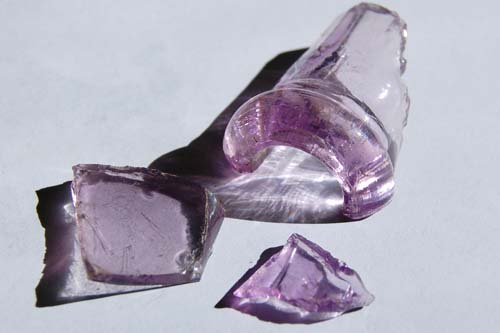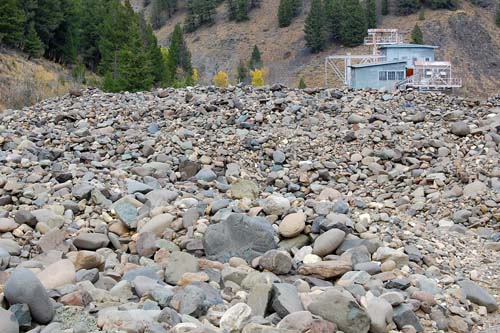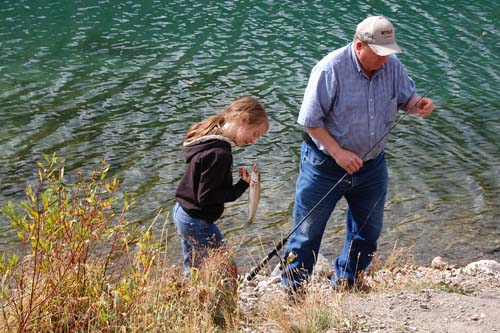Saturday, October 8, 2011
Wednesday, October 5, 2011
GHOST TOWN--CUSTER, IDAHO
Almost
exactly in the rugged center of Idaho on the Yankee Fork of the Salmon River
(also known as The River of No Return) is a ghost town named after the
General
Custer gold mine. The town of Custer
mother lode of gold was discovered along the river.
Gold was extracted
from the rocks using stamping mills. The
heavy machinery
was hauled to the area by mule packers along the rugged trails
from places
as far away asSalt Lake
City , Utah
as far away as
The town
reached its peak population of about 600 in 1896. It had houses, stores,
restaurants, a school
and plenty of saloons. By 1904 the mines and the mill closed
when the gold
played out. By 1911 it had become a ghost
town, but not before
millions of dollars of gold had been recovered.
Some of the
settlement has been restored and preserved.
We visited after Labor Day so the buildings were boarded up and…
We visited after Labor Day so the buildings were boarded up and…
…the museum
in the old school was closed.
Still we could
peek inside the buildings and see some of the old furniture and antiques.
Other items
were left to rust and return to the earth.
Some lady
must have been so pleased to have a new stove
in her cabin kitchen…
in her cabin kitchen…
…hauled all
the way from St. Louis
The Empire
Saloon now serves as the gift shop.
Next to the
saloon was a vintage outhouse.
Fortunately
for visitors there were also better facilities provided by the Forest Service.
by the people
who lived in the old mining town.
Most of the
glass was purple, indicating it was made between 1860 and 1915
when glass
makers used manganese instead of lead due to lead shortages
created by the
Civil War. Glass containing manganese
eventually
turns a light purple when exposed to sunlight.
The road
that leads to Custer and its sister city, Bonanza, follows the river up the
canyon.
The whole river bed looks like it’s been churned up by a giant monster gopher.
Once placer mining was exhausted the owners
of the gold claims knew
valuable gold still existed so they joined
together and
in 1939 they
built a huge dredge the size of a hotel.
It could dig down 35 feet to haul up the gravel ore.
The dredge washed and separated the rock and
dirt from the gold.
It operated
until 1949, pulling out another 16 million dollars in gold.
On a whim I
picked up a rock about the size of a baseball
and threw it against another
rock.
I kept the piece that split off
and put it in my pocket.
I didn’t
notice until I was home that…
I could see
flashes of light and metallic sparkles in the rock
when I turned it in the
sunlight.
Monday, October 3, 2011
LEARNING FROM THE MASTER
DH is an expert fisherman. Rainbow and Brown Trout fear him.
He gets in plenty of practice, especially since he retired from teaching
at the university. He is happy to teach fishing skills to anyone ready to try.
at the university. He is happy to teach fishing skills to anyone ready to try.
Last weekend there were some granddaughters
willing to pick up a few pointers from the master.
I'll let the photos tell the story...
Baby J. thought the fish were cool.
The kids and grandpa brought back enough little rainbow trout to fry up in a pan.
When DH and his friends get serious about fishing they usually bring home
the legal limit of trout and they are three times that size.
Labels:
family,
fish,
learning experience
Sunday, October 2, 2011
Subscribe to:
Comments (Atom)































